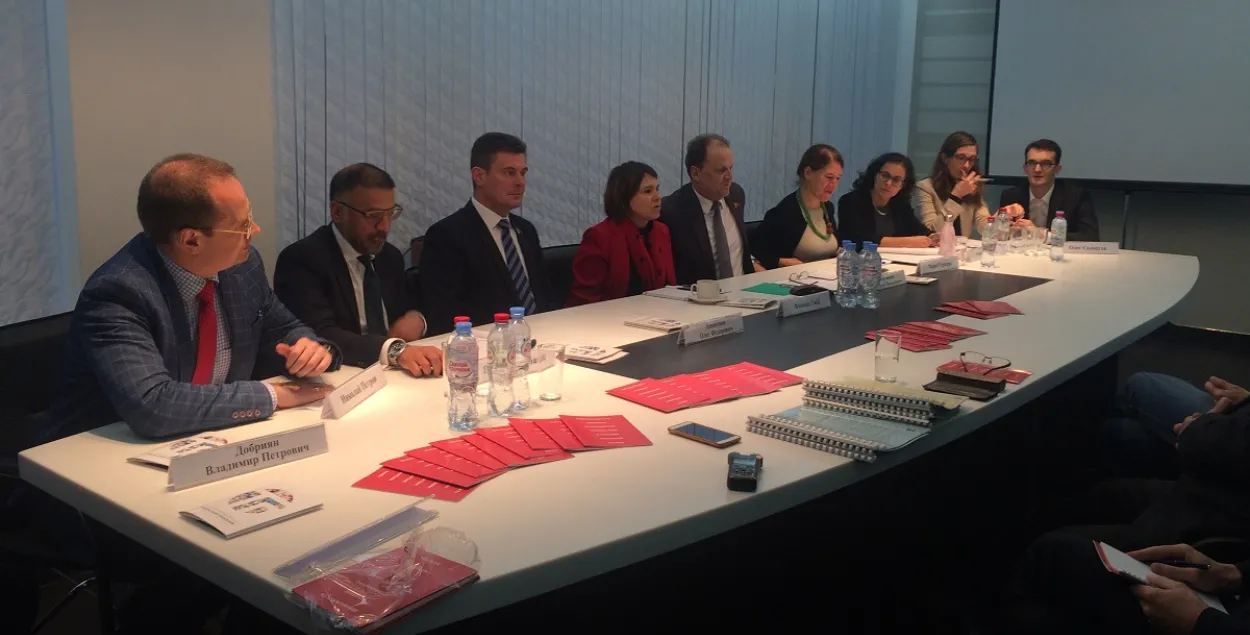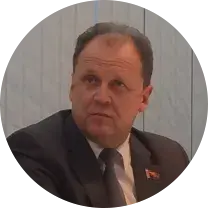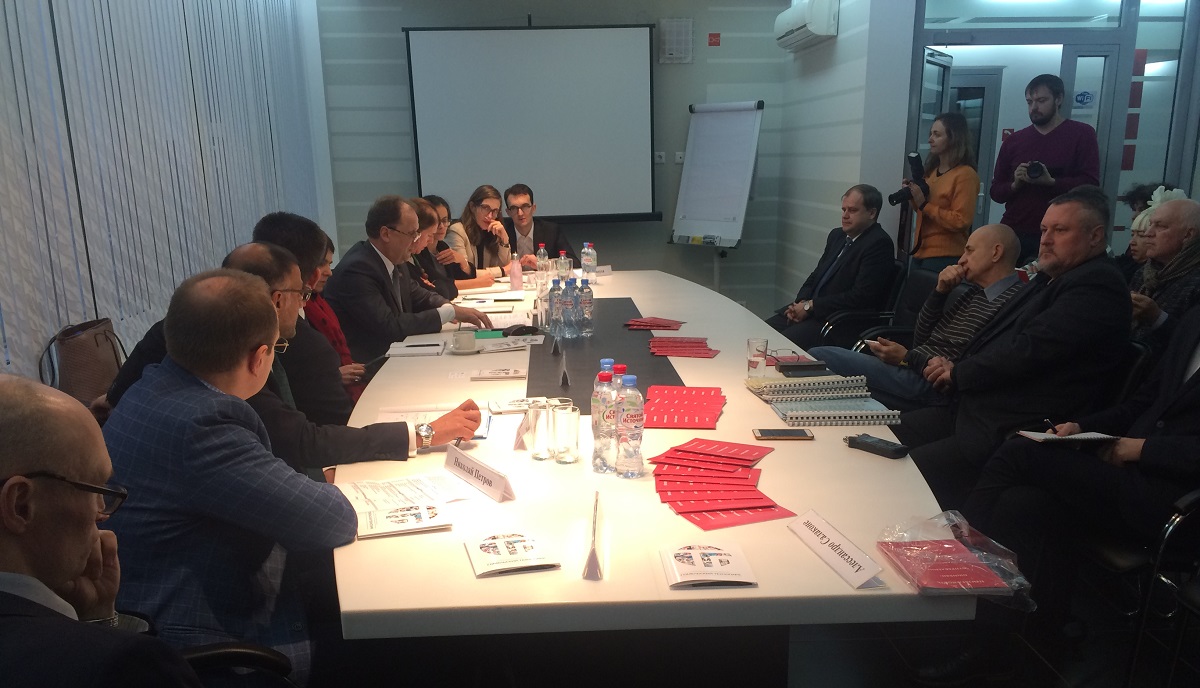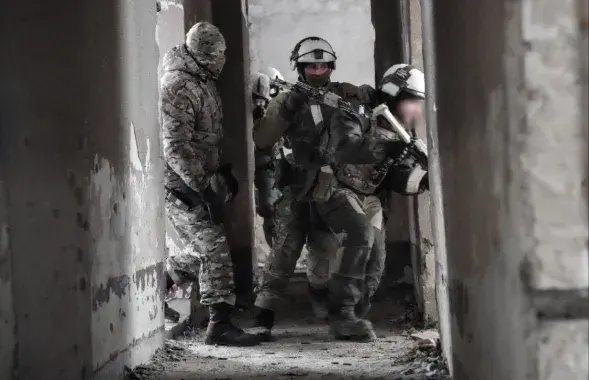Abolition of death penalty discussed in Belarus regions

Photo: Anastasiya Boika/Euroradio
"We could not discuss the abolition of the death penalty with the Belarusian authorities in 2009. Now it is possible," rights defenders from Amnesty International Mary Steisers and Aisha Yung told Homel activists.
Despite the fact that the meeting was organized by the British Embassy, the participation of the head of the Permanent Commission for Human Rights, National Relations and Mass Media is a good sign for those who would like the death penalty to be abolished in Belarus.
Three deputies took part in the meeting: Andrei Navumovich, deputy from Central Homel constituency Aleh Leushunou and MP Uladzimir Dabryyan.
"Public punishment or information gradually presented to the public?”
Andrei Navumovich reproached journalists for the poor coverage of the problem of the death penalty. Journalists from the state mass media have also been invited to the meeting but nobody has come, representatives of the British Embassy noted. Maybe the state TV and local newspapers do not think that the death penalty is an important topic.
"It is essential to discuss it on state TV channels,” Fionna Gibb thinks.
Euroradio asked Andrei Navumovich why the state does not inform people about executions. Rights defenders, lawyers and other death convicts do it but the government never does.

"We have discussed this issue with professionals today. What is better: a public punishment or information gradually presented to the public? We have not reached an agreement. We have also discussed the problems of death convict’s funeral [relatives do not know where their graves are]. Won’t the graves be desecrated? Journalists asked about it. Anything can happen,” Navumovich replied.
"When and how can a death convict compensate for moral damages to the victim?"
Homel rights defender Leanid Sudalenka represented the interests of Volha Hrunova in the UN Human Rights Committee. She is the mother of Alyaksandr Hrunou who was executed in November 2014. The woman lodged a complaint because the state had not given her the body of her son after the execution.
The Belarusian legislation treats death convicts’ relatives blasphemously, Sudalenka said:
"The court sentences a person to death and their relatives have to pay a huge compensation for moral damages. The state should think about the victim. Yet, the convict is sent to the condemned cell and that’s it. When and how can a death convict compensate for moral damages to the victim?”

"The government needs to express its political will”
Alyaksandr Lukashenka justifies the existence of the death penalty in Belarus by the results of the 1996 referendum. Belarusians expressed their will and it needs to be reckoned with, he said.
"If I could live two lives I would agree that there is some progress,” Sudalenka said. “The reference to a referendum organized 2 decades ago is good-for-nothing. It was not even binding. The world has changed so much since then! There was no Internet in my country when that referendum was held.”
A referendum is a referendum but the decision about the existence of the death penalty is taken by officials, British expert Parvez Jabar noted:
"The government and the state authorities should express their political will. The government should say: ‘We have discussed the issue and decided to abolish the death penalty in Belarus. However, we need to explain the reason for our decision to the public.’ I believe that it should be done this way. Otherwise, we will gather here in 20 years and organize the same discussion since there are people who support the existence of the death penalty even in Great Britain.”
The Belarusian authorities are sure of their position. “The people can see that it [the death penalty. – Euroradio] is a great hindrance to criminals. Europeans may start studying our experience soon,” Alyaksandr Lukashenka announced. The position of the European Union is also known: a country cannot join the Council of Europe until the death penalty is abolished.
"The progressive world community and the EU are waiting for us to abolish capital punishment. It may help solve some political issues influencing the economic relations with the EU,” head of the expert community “Strategic Thought” Alyaksei Harkevic thinks.
Nobody is answering his request to abolish the death penalty in Belarus. MPs are not an exception.
There are at least 4 death convicts in Belarus now. Viktar Letau and Alyaksei Mihalenya were led out of the cell on the night on May 16, death convict Vyachaslau Suharka said at the hearing of his appeal in May 2018. Suharka has never seen them again. Based on what Andrei Navumovich said about 4 convicts expecting execution during the meeting in Homel, Letau and Mihalenya were executed. “Black realtors” from Mahilyou (Ihar Hershankou and Syamyon Berazhny), Alyaksandr Zhylnikau and Vyachaslau Suharka (convicted for the murder of 3 people) are expecting execution at the moment.


















